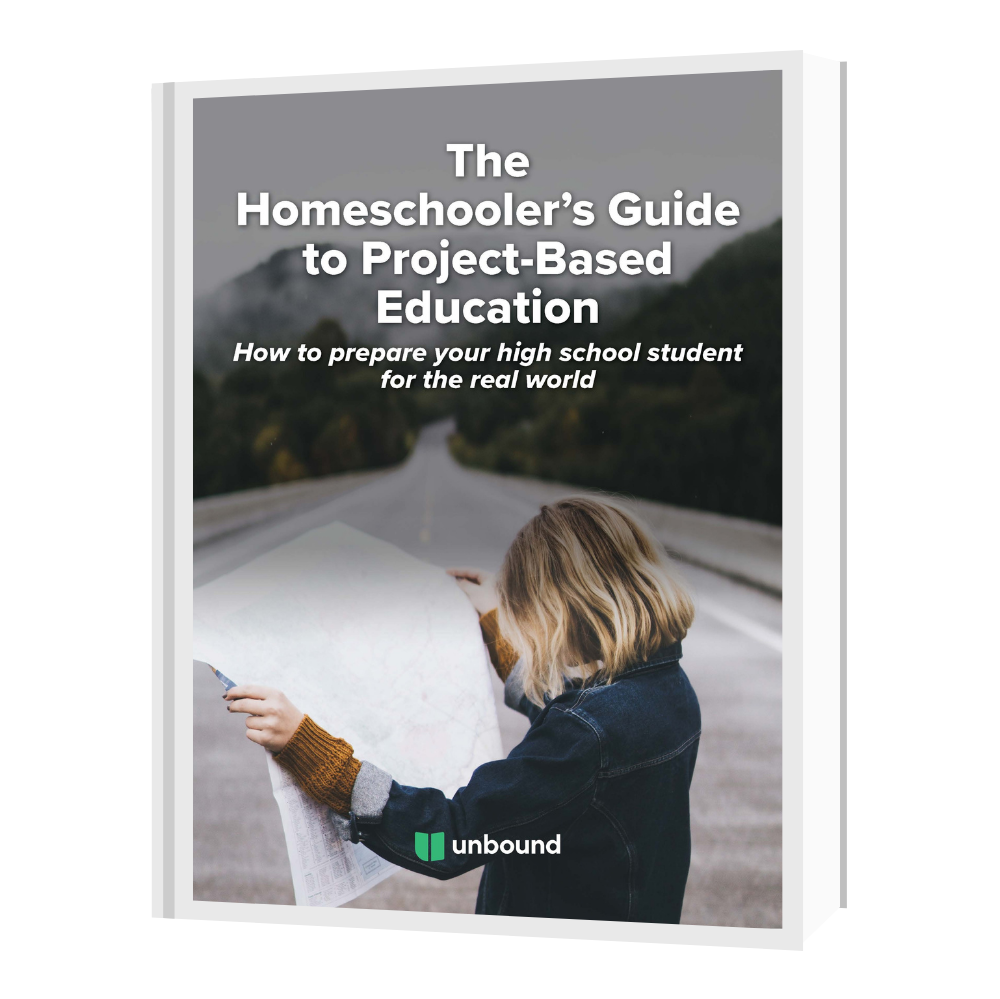An Education You Can Use: How Project-Based Education Actualizes Learning


Our world is full of problems.
There are a number of solutions to these problems proposed. But one that comes up a lot is education.
We’re told that if kids only had access to the best education, then many of the problems we face would be significantly helped.
There may be some truth to that sentiment. Education is important and opens up many opportunities. Education can also be used to develop wisdom and critical thinking, which are key tools for problem solving.
But just any education isn’t going to solve all our problems. (Even the best education couldn’t do that.)
The impact of education is in the application.
The future of education in your inbox.
Get productivity tips, commentary, and Unbound updates sent to you!
The Purpose of the Tool
Education is a tool. And yet the real power of a tool is dependent on the ability to wield it properly.
You have to know the purpose of the tool, how to use it, and when to use it for maximum positive impact.
You’ve probably heard this phrase: “To a hammer, everything’s a nail.” This quip refers to the idea that people use tools according to their own perspective on how best to use them. To a psychiatrist, every problem may be neurological. To a politician, every problem may be political. And so on.
It’s important to understand how and when to use the tools we have. And that goes for education too. How, when, and why, do we apply our education?
Project-Based Education
Applying our education begins with educating ourselves with application in mind.
The way we structure our education, and that of our students, plays a significant role in enabling application. That’s why project-based education is powerful. It works to teach students while immediately giving them opportunities to apply what they learn. And to actually learn through the process of doing something!
If your student is learning something, they should also be critically thinking about how what they learn will be used in their life. Sometimes, that’s not immediately evident. There are plenty of things your student will study and learn that they will convince themselves have no use in the real world. But even those things have an important place in education.
Let’s take a common example to illustrate.
Many students complain about algebra. “I’ll never use this in my life! Why should I learn it?”
And the truth is, most of them won’t use those complex algebraic formulas in their everyday life. But, it’s a great learning opportunity nonetheless. Because while they may not need to use the exact formulas later in life, they most certainly will need to quickly and effectively master complicated information. That’s a skill that can be applied almost everyday!
So while they may need to learn algebra just to pass a test, they also have the opportunity to pick up the skill of learning quickly and effectively, and finding the right information to solve the problem at hand (i.e. the test). That ability will serve them well in their future problem-solving.
An Education You Can Use
We all have problems that need solving. And we all have tools at our disposal, though not all the same ones.
Equipping your student with an education that they can use practically means they need to know the how, when, and why of how to apply their education.
Ascend by Unbound brings project-based education to your student’s college pursuits. Ascend students use project-based education to build an education they can do something with. Schedule an appointment with an admissions counselor to learn more about Ascend and to see if your student is eligible.


Jace Bower is a Copywriter for Unbound. An Unbound alumnus, he has experienced firsthand the powerful advantages of doing college differently and participating in an intentional community. Jace graduated with his bachelor’s degree in History in 2016 and has worked in restaurant management and marketing since then. He also served on the Unbound Student Cabinet in 2019.
The author of two books and a semi-regular blogger, Jace can often be found doing something with words. When he’s not, chances are he’s reading about theology, listening to music, or playing pool or tennis with his wife Shannon in their Virginia home.


